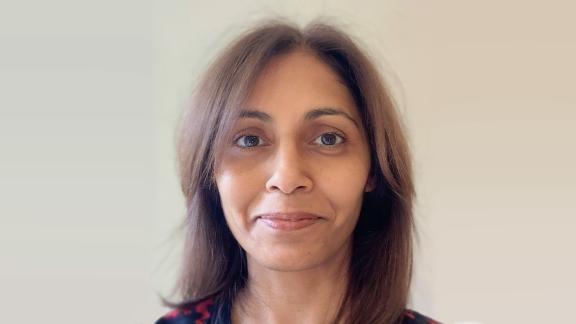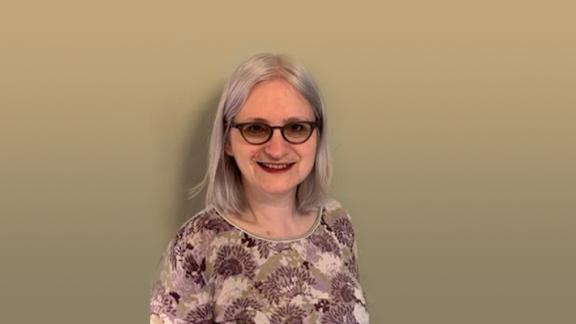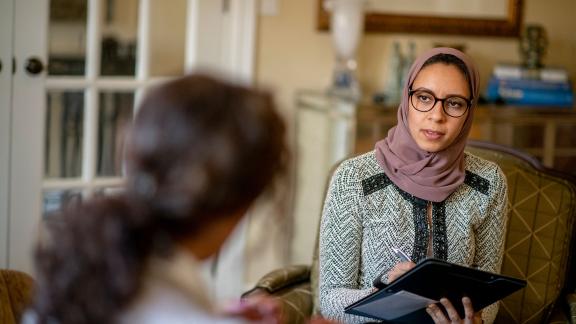NHS Reset: Primary care networks have a huge opportunity to help improve mental health – here’s how

NHS Reset is an NHS Confederation campaign to help shape what the health and care system should look like in the aftermath of the pandemic.
In this blog, Dr Aruna Garcea reflects on the opportunities for primary care networks to support local communities in delivering mental health provision that reflects local need.
Mental health in primary care has always been a core part of being a GP, which can be one of the most rewarding aspects of our role. But the impact of rising demand, increasing complexity and absent accessible support services, such as counselling, has hindered us from providing the care we know our patients need.
We cannot forget the collateral emotional impact on us as professionals – often feeling frustrated and impotent, managing our patients’ needs with ‘generalist’ skills to plug the gap in waiting for counselling or a specialist opinion. The cocooned world of the doctor-patient relationship can challenge us emotionally, particularly at times of managing risk and uncertainty, with crisis management being interventional rather than providing continuity of care within the system. For the patient, it may feel that unless you fit into a neat pathological diagnosis, you may be embarking on a journey of ‘pinball care’, with your GP at your side.
“It just doesn’t make sense…. we could do it better,” I hear many GPs say. As individual GPs and practices, we are too small to effect change in the system. But as a collective force with a primary care network (PCN), the opportunity now exists for us to make local and system changes to support our patients and clinicians to provide appropriate and timely care for those in need.
Mental health is probably at the top of most PCNs’ strategic agenda due to the significant demand from across all ages, including children and adolescents. We are already seeing increases in mental health issues because of COVID-19. The parallel pandemic of mental health is mirroring COVID-19 through isolation and loneliness and disrupting the frameworks that support people in their day-to-day lives.
Young people and adolescents are of particular concern, given the disruption of school, their social development and routines. Anxiety, behaviour and low mood have featured in calls to the surgery from parents for help, particularly those with children with ADHD and autism who have found the change in social anxiety around the threat of COVID-19 and loss of structure from school very difficult.
The move to digital triage and virtual consulting has also been a challenge. The role of PCNs to work together to meet the needs of our communities and in ensuring integrated care systems recognise and adapt to our needs allows us to be empowered to ‘do’ rather than be ‘done to’.
Mental health is intrinsically linked to your community profile. We know that mental health is affected by housing, employment and access to green space – our current model of provision leaves people wanting. The system has evolved into a top-down fragmented model of care that has often failed to adapt to the needs to individual communities. We fail to provide services that are localised to the needs of our communities and the individuals within them, resulting in the difficulties borne from insufficient care that we and our patients are experiencing daily.
PCNs offer an opportunity to make that connection between community and system. They provide an opportunity for us to become a voice for our citizens and to translate local strategy and information from our communities to the ICS so that they can reflect and accommodate local solutions.
My primary care network looks after two university practices. Student mental health can often be overlooked by local clinical commissioning group (CCG) strategic plans, as it often impacts locally on the university itself and local practices rather than population health management and impact data. However, each staff member in a practice looking after patients from higher education institutions knows that mental health is a key area of focus for their services.
University is a significant life event. For those who were already seeking mental health support, this will also be a time of change from children’s mental health services to adult services. Often sitting on the outside of CCG priorities, university practices and their PCNs have now been able to start to flex solutions for their unique communities and ensure that they are present at system and place level.
We have worked with Leicester University on developing an ambitious framework to cater holistically and seamlessly for students with mental health needs, by working in partnership in a multidisciplinary team framework. The plan supports a tiered framework of care, according to need, supported by university departments.
The PCN Additional Role Reimbursement Scheme has enabled us to provide diverse joint appointments including health coaches and social prescribers, and we are looking forward to providing mental health practitioners. Understanding that local need has enabled us to transform and deliver a strategic solution locally. Furthermore, we have worked with academic departments to educate and support alternative solutions, including medical students and mindfulness programmes that have now been incorporated in the medical student curriculum, supported by our clinicians.
Our experience is not the only model of how PCNs can work with their community to understand their needs and provide tailored mental health support. Across the country, PCNs are working with their local communities to translate their needs into localised mental health services, from the drug and alcohol service in Lancashire and support for the homeless elsewhere.
PCNs have an exciting opportunity to expand what they deliver with the introduction of new roles, such as mental health practitioners and social prescribing link workers. Increasing our engagement with the community helps us to provide neighbourhood solutions, offering social prescriptions with a mental health flavour.
PCNs have the ability to provide services that meet the needs of the community, to influence and to make a difference. I didn’t realise how much influence I could have, but I now have a seat at the table and can influence the ICS to ensure that we aren’t just adopting top-down solutions. Rather, we can tailor the mental health support for our local community. It’s vital that clinical directors raise their hand and ask to be involved. If you would like support in making those connections, please join the PCN network.
Dr Aruna Garcea is a GP principal and trainer at the University Practice in Leicester and a clinical director of Leicester City and Universities Primary Care Network. She is also a member of the PCN Network clinical directors’ board.



